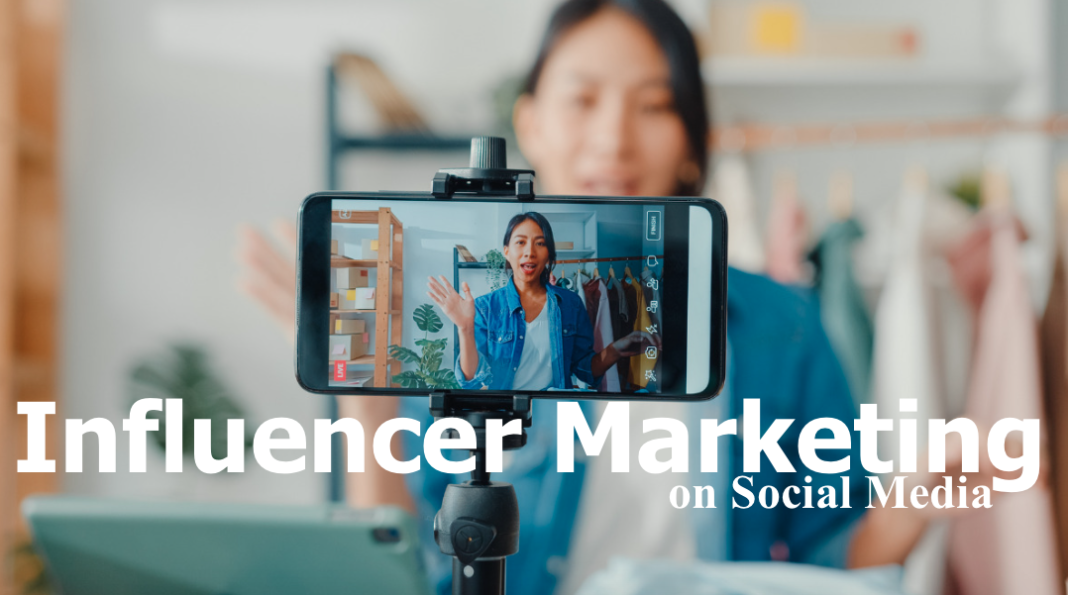An explanation of how Influencer Marketing is Loosing Value and Business owners now preferring opinions from real life consumers. But the question is; has influencer marketing lost its effectiveness?
Recent findings reveal that a staggering 90% of consumers now prioritize the opinions of real consumers over those of paid influencers. This shift in consumer preferences suggests that influencer marketing may be losing its appeal.
Over the past ten years, digital platforms have really changed the marketing industry. Influencers have played a big part in this.
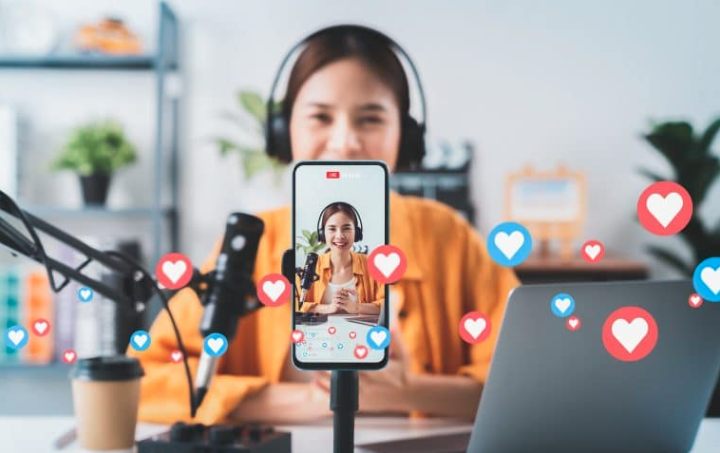
However, new research shows that consumer preferences might be changing. It looks like influencer marketing could be on the decline. Nowadays, most consumers (around 90%) actually prefer content created by people they know, rather than content from paid influencers.
This is the issue especially when people are getting notifications of unfamiliar faces, unsolicited friends requests and more from people they don’t know.
The Influence of Influencer Marketing on the Decline.
Not too long ago, social media influencers held significant power in the online marketplace. Brands eagerly sought their endorsements, and their presence on our social media feeds seemed unstoppable.
However, the influence of influencers is now waning. A recent survey by EnTribe sheds light on this shifting consumer sentiment.
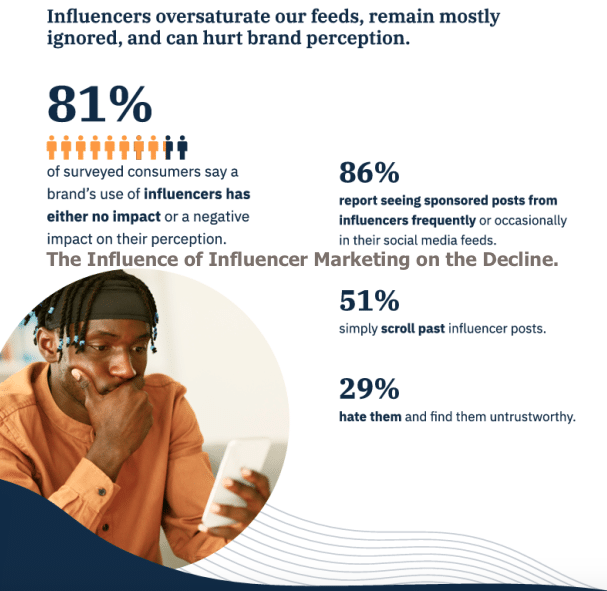
In April 2023, over a thousand American consumers were surveyed, revealing that a considerable 81% of consumers were unfazed by a brand’s association with an influencer.
For many, influencers have lost their trustworthiness, as 51% admitted to overlooking influencer posts while scrolling through their feeds.
Featured Post
- 10 Types of Government Grant Money you Should Apply for Today
- How to Make Money Online – 5 Ways You can Make Extra Cash
- 10 China Future Predictions of Big Data Market
Increasing Popularity of Real Consumer-Created Content
The rise of authentic consumer-generated content is alarming. It’s not surprising to see declining interest in influencer marketing, considering that 86% of respondents regularly come across influencer posts. In fact, some participants expressed strong resentment, with almost a third expressing aversion and questioning the trustworthiness of such posts.
The survey suggests that influencer marketing may not be as effective as previously believed. Only 12% of respondents reported making a purchase based on an influencer’s promotion, and a concerning 42% expressed regret over those purchases.
As trust in influencer marketing declines, there is a growing preference for consumer-generated content. The same EnTribe survey revealed that a vast majority of participants (90%) favored brands featuring content created by real consumers instead of influencers.
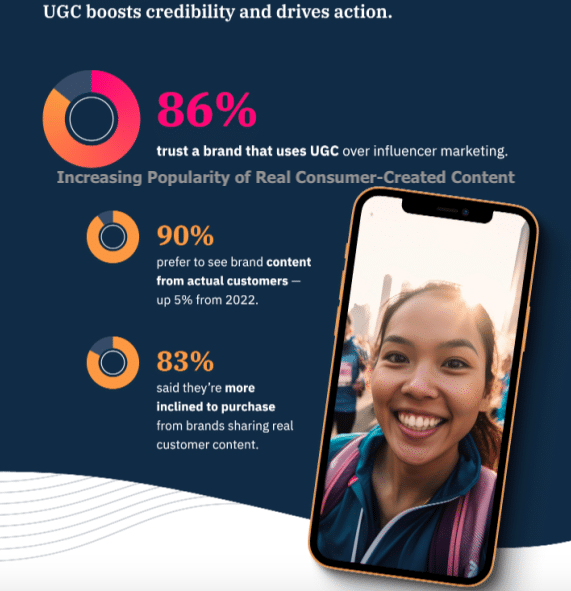
Upon reflection, these findings make sense. 86% of respondents admitted to placing more trust in a brand that promotes user-generated content, and 12% indicated they would likely make a purchase based on such content.
Peer recommendations hold considerable power, as evidenced by 90% of participants making purchases influenced by friends or family. Furthermore, an encouraging 82% reported that they would be more inclined to purchase from a brand that promotes user-generated content.
These survey results provide clear evidence that influencer marketing may be losing its effectiveness, with statistics such as 81% of consumers lacking interest in influencer marketing and 90% placing greater trust in content generated by real customers supporting this perspective.
Moreover, the fact that 90% of consumers have made purchases based on peer recommendation.
Gen Z’s Taste for Peer Recommendations over Influencer Marketing
The Gen Z’s wish towards peer recommendations over influencer marketing is becoming more evident, aligning with a growing trend in digital marketing strategies.
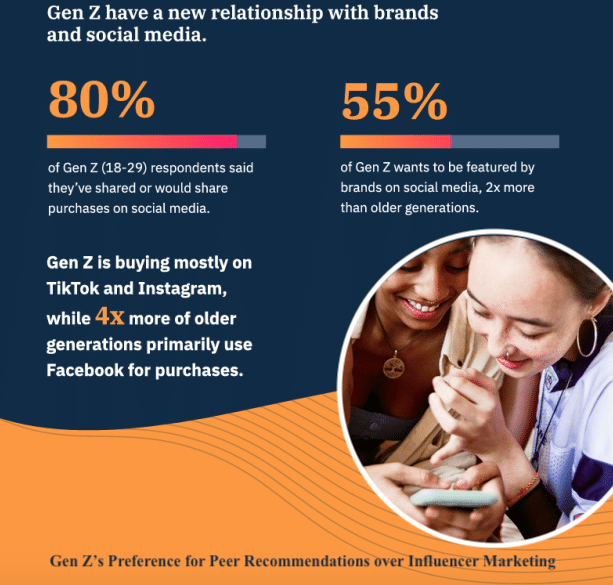
As you can see above, platforms like TikTok and Instagram are particularly popular among Gen Z, with 80% expressing a preference for recommendations from their peers rather than influencer promotions.
Interestingly, 55% of Gen Z respondents expressed a desire to see their purchases featured by brands on social media, indicating a new dynamic of engagement.
This research underscores a significant shift in the digital marketing landscape, as the dominance of influencers faces increasing challenges.
While influencer marketing may not be completely obsolete, brands that prioritize genuine consumer-generated content can gain higher levels of trust and loyalty from their customers. This shift may pave the way for a future where the collective voice of the consumer community holds greater influence.
Similar Articles
- Best Tech Stocks to Watch – How to Buy Tech Stocks as Investment
- How to Borrow Money with Instant Cash Advance from your Credit Card
- Domestic Cloud Computing Market Technology lacks Business Model Innovation

